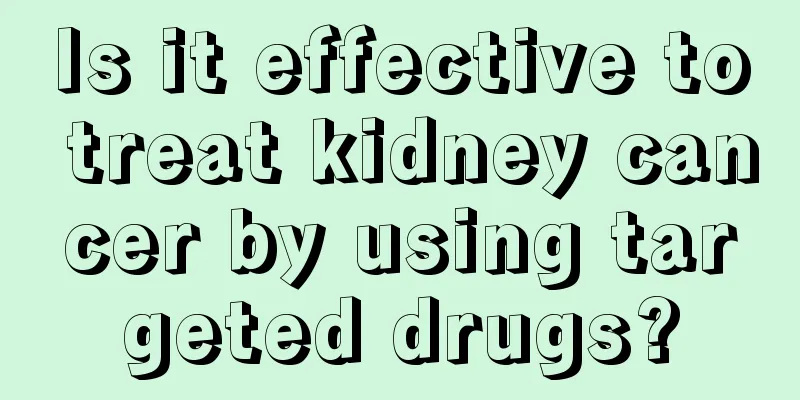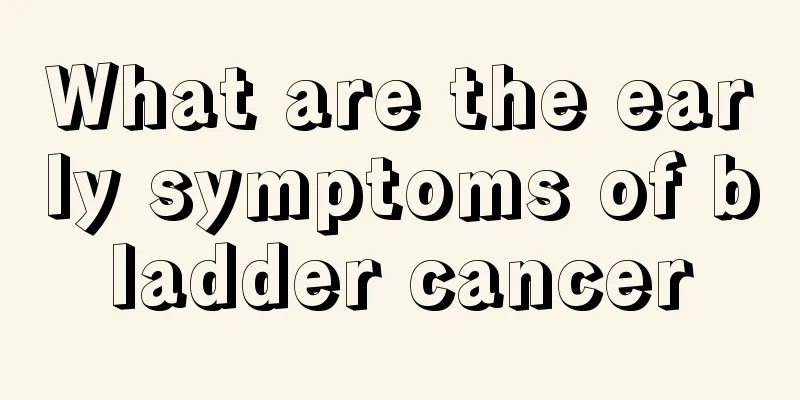Is it effective to treat kidney cancer by using targeted drugs?

|
The effect of using targeted drugs to treat kidney cancer is generally significant, especially for those patients who are not candidates for surgery. 1. How targeted drugs work Targeted drugs mainly work by interfering with specific molecular pathways of cancer cells. For example, angiogenesis inhibitors can prevent the formation of new blood vessels in tumors and cut off the nutrient supply of cancer cells. m-TOR inhibitors inhibit the proliferation of cancer cells by interfering with the growth and division pathways of cells. The mechanism of action of these drugs gives them a clear advantage in prolonging patient survival. 2. Prolongation of overall survival According to clinical data, targeted drugs can significantly prolong the overall survival of patients with kidney cancer. Compared with traditional chemotherapy and radiotherapy, targeted drugs are more effective and extend the survival of many patients. This is an important treatment option for patients with metastatic kidney cancer or those who cannot undergo surgery. 3. Side effects and drug resistance Although targeted drugs are effective in treating kidney cancer, they also have certain side effects and drug resistance. Common side effects include high blood pressure, rash, fatigue, etc. Drug resistance means that after long-term use of targeted drugs, cancer cells may become resistant to the drugs, causing the treatment effect to gradually weaken. In response to these problems, doctors usually adjust the treatment plan according to the patient's specific situation and choose the appropriate drug combination. 4. Personalized treatment plan The situation of each kidney cancer patient is different, and the selection and use of targeted drugs also need to be adjusted according to the individual's specific situation. Doctors usually develop personalized treatment plans based on the patient's genetic test results, disease progression, and physical health. This can not only improve the treatment effect, but also minimize side effects. 5. Combine with other treatments In some cases, targeted drugs can be used in combination with other treatments, such as immunotherapy, surgical resection, etc. For example, immunotherapy attacks cancer cells by enhancing the patient's own immune system, and combined with targeted drugs, it can achieve better treatment effects. Surgical resection can further remove residual cancer cells after targeted drug treatment and improve the cure rate. 6. Adjust your lifestyle In addition to drug treatment, kidney cancer patients also need to adjust their lifestyle. Maintaining good eating habits, proper exercise and adequate rest can help improve the body's immunity and enhance the treatment effect. At the same time, mental health is equally important, and a positive attitude can help improve the success rate of treatment. Through the comprehensive consideration of the above aspects, targeted drugs do have significant effects in the treatment of kidney cancer. Although there are some side effects and drug resistance issues, patients can benefit greatly from this treatment through personalized treatment plans and lifestyle adjustments. |
<<: Why do breast cancer lesions disappear after chemotherapy?
>>: Symptoms of nasopharyngeal carcinoma stage 1, 2 and 3
Recommend
What to do if there are fleas at home
Fleas are a very annoying species. They are usual...
How to treat intermittent strabismus
There are many methods for the treatment of indir...
How to cure chicken skin
When chicken skin appears on the skin, it will be...
What dietary considerations should patients with lymphoma pay attention to?
Lymphoma, also known as "lymphoma", is ...
What foods can you eat more to prevent lung cancer? These three ways of eating are beneficial to lung cancer patients
Lung cancer is a disease with a very high inciden...
What is the best way to dehumidify the body
Too much moisture in the body will not only make ...
Causes of osteosarcoma
As we all know, osteosarcoma is difficult to cure...
What is the targeted drug for ovarian cancer
Ovarian cancer is the third most common gynecolog...
How to choose a specialized hospital for esophageal cancer
Esophageal cancer is a type of cancer that has pu...
Symptoms and causes of blocked tear ducts
Tear duct obstruction is relatively common in cli...
How to use a flat iron to make curls
For some girls with straight hair, sometimes they...
How to excrete excess body fat
If there is too much fat in the human body, it is...
What are the early symptoms of prostate cancer?
Prostate cancer often occurs in the posterior lob...
How to slice onions tutorial
Onion is a common food in our life. Many people l...
What are the high-risk factors for lung cancer
What are the high-risk factors for lung cancer? L...









